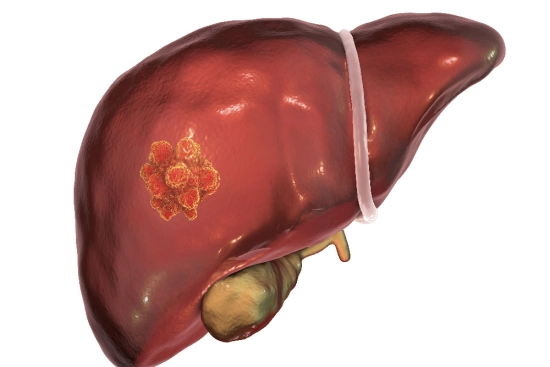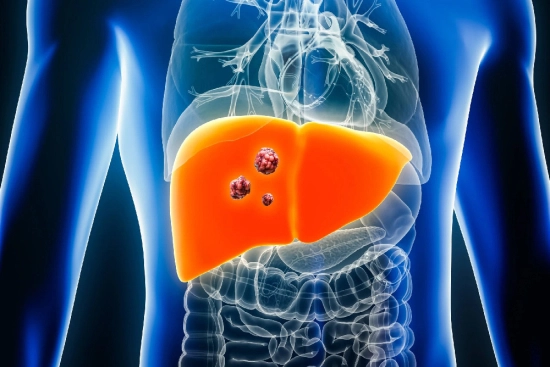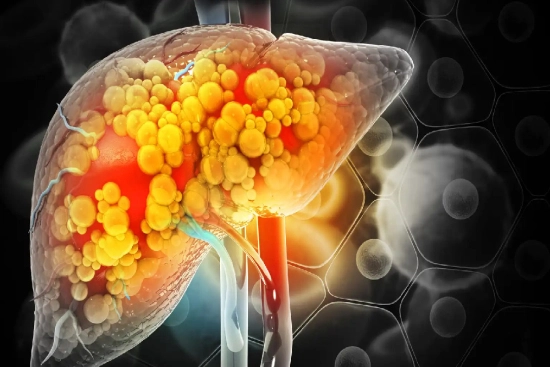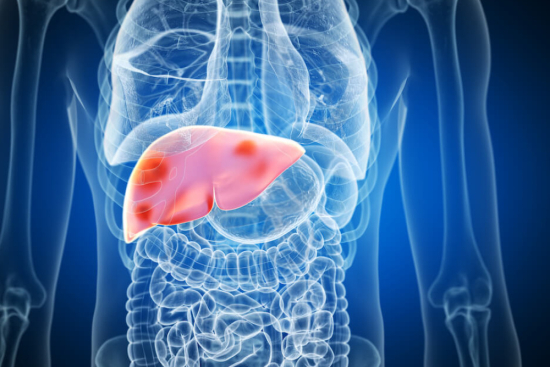Although less common than other cancers, liver cancer is a serious public health problem. Often preceded by liver damage related to alcohol or hepatitis viruses, this cancer is largely preventable. Its impact is severe, and it is imperative that action be taken to reduce its incidence.
- Infections.
- Blood clotting.
- Pneumonia.
- 4 to 10 hours.
- 6 months.
- 90%.
Best Clinics with Verified Reviews

- Multispecialized hospital
- 7 operating rooms
- Capacity é of 170 beds

- Multispecialized hospital
- Hospital founded in 2007
- Very good reputation in ENT department
Liver cancer: what is it?
The liver, our largest internal organ, plays a key role in many vital functions. By producing digestive enzymes and bile, the liver facilitates the digestion of fats. It also synthesizes proteins essential for blood clotting and plays a vital role in removing toxic substances from the blood.
By producing digestive enzymes and bile, the liver facilitates the breakdown of food. It also synthesizes proteins essential for blood clotting and plays a vital role in removing toxic substances from the blood.
However, liver cells can sometimes change and form tumors. These can be benign, such as hemangiomas, or malignant, such as hepatocellular carcinoma. The latter, the most common primary liver cancer, develops from the liver cells themselves.
Cancer can also develop in the bile ducts of the liver, resulting in cholangiocarcinoma. It's important to note that the liver can also be affected by metastasis, which is the spread of cancer that started in another organ. Each type of liver cancer requires specific treatment.

Liver cancer warning signs
The early stages of liver cancer are often asymptomatic. As the tumor grows, it may compress organs or block bile ducts, causing a variety of symptoms. These may include:
- Abdominal pain.
- Loss of appetite.
- Jaundice.
- Tiredness.
- Swelling of the abdomen or limbs.
- Itching.
- Cognitive impairment.
These symptoms may also be associated with other liver diseases. If you experience any of these symptoms, contact your doctor as soon as possible for an accurate diagnosis and appropriate treatment.
Diagnosis of liver tumors: a process explained
Diagnosing liver tumors is a process that requires several steps to make an accurate diagnosis and determine the best treatment.
The first steps
If symptoms or routine test results suggest a liver problem, your doctor will do a thorough clinical exam. This will include:
- A detailed questioning about your medical history, symptoms, and risk factors.
- A physical examination to look for abnormalities in your abdomen.
If these initial findings indicate possible liver damage, further tests will be ordered to confirm or rule out the diagnosis.
Additional tests
Several tests may be done:
- Blood tests: These assess liver function and look for the presence of tumor markers, such as alpha-fetoprotein (AFP). However, an elevated AFP level does not systematically indicate liver cancer.
- Medical imaging: Ultrasound, CT, and MRI can be used to visualize the liver and detect abnormalities (tumors, metastases). These tests are often combined with the injection of a contrast agent to obtain more accurate images.
- Liver biopsy: A small sample of liver tissue is removed for microscopic analysis. This allows us to make a definitive diagnosis and determine the type of cancer.
Why so many tests?
Diagnosing liver cancer can seem complex and time-consuming. However, each test provides additional information and helps refine the diagnosis. It's also important to rule out other possible causes of symptoms before making a cancer diagnosis.
In Turkey, your doctor and healthcare team will be with you every step of the way. Don't hesitate to ask questions. Early diagnosis is essential for appropriate treatment and a better chance of recovery.

Liver cancer staging
Liver cancer is divided into five stages, from stage 0 (very early) to stage D (advanced). Each stage represents a different extent of disease and a different prognosis.
- Stage 0: Single, small, asymptomatic tumor.
- Stage A: Multiple small, asymptomatic tumors.
- Stage B: Larger or more tumors, still without symptoms.
- Stage C: Cancer that has spread to the blood vessels of the liver or other organs, with symptoms.
- Stage D: Very advanced cancer with significant spread and symptoms.
Despite treatment, the cancer may come back: this is called a recurrence. It may be local (in the same place),regional (nearby),or distant (in another part of the body).
If you have questions about the staging of your liver cancer, talk to your healthcare provider. He or she will be able to explain the meaning of your stage and help you understand the different treatment options.
Liver cancer treatments in Turkey
The choice of treatment for liver cancer depends on many factors, including the stage of the disease, the size and location of the tumors, overall liver function, and the patient's overall health. Several treatment approaches are possible:
Surgery
Surgery for liver cancer in Turkey includes:
- Partial liver resection: This involves removing the part of the liver that contains the tumor. It is generally preferred for small cancers on a healthy liver or one with only mildly advanced cirrhosis. Patients with stage A disease are most likely to benefit from this surgery.
- Liver transplantation: This procedure involves replacing the diseased liver with a healthy one from a donor. Liver transplantation is indicated when liver function is severely impaired by disease, or when tumors are too numerous or widespread to be removed surgically.
- Radiofrequency or microwave ablation: These techniques use heat to destroy tumor cells by inserting probes directly into the tumor. They are used for small tumors and may be an alternative to surgery in certain cases.
Systemic therapies
Systemic therapies for liver cancer include
- Chemo-embolization: This technique involves injecting anticancer drugs directly into the artery feeding the tumor, combined with obstruction of that artery to increase the effectiveness of the treatment.
- Targeted therapies: These treatments use drugs that specifically target cancer cells by exploiting their molecular characteristics.
- Systemic chemotherapy: Intravenous administration of anticancer drugs may be used to treat advanced liver cancer or cancer that has spread to other organs.
Symptomatic treatment
In addition to these curative or palliative treatments, symptomatic therapies may be offered to relieve pain, fatigue, nausea, and other symptoms associated with the disease or treatment.
Treatment of liver cancer in Turkey is an individualized process that requires multidisciplinary care. The most appropriate treatment is chosen in collaboration with a specialized medical team, taking into account the specific characteristics of each patient.

Risks & side effects of surgery for liver cancer
As with any major surgical procedure, liver surgery can cause complications, including:
- Bleeding: Because the liver is a highly vascular organ, the risk of severe bleeding is a major complication of surgery. Although the liver produces substances that promote clotting, damage sustained during surgery can alter this natural mechanism, increasing the risk of bleeding.
- Infection: Risk of infection of the surgical wound or other organs.
- Anesthesia-related complications: allergic reactions, heart or breathing problems.
- Blood clots: Formation of blood clots in the veins, leading to pulmonary embolism.
- Pneumonia: Infection of the lungs, often associated with postoperative immobilization.
- Tumor recurrence: Even after successful surgery, there is a risk of cancer recurrence. In fact, the underlying disease that led to the development of cancer may persist in the remaining liver tissue.
Because of the complexity of the organ and the risks involved, only surgical teams experienced in liver surgery can perform this type of surgery.
Share this page






